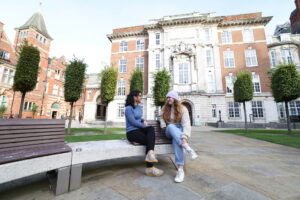How you'll learn
Teaching takes place in regular two hour interactive lectures or 50 minute small-group seminars and workshops as we believe this leads to the best collaboration between students and staff.
Practical learning is embedded throughout the course through short placements on some modules, as well as the option to undertake a work-based dissertation, which is designed to help embed professional practice and prepare you for a career in archives and records management.
There are also field trips during the programme, which enables you to experience and research relevant best practice in the industry.
This takes place alongside directed and self-directed digital learning with professional digital tools to support the develop of relevant skills for future careers.
How you're assessed
Assessments may include a combination of written and oral assessments, as well as examinations to test specific skills developed through this course.
Written assessments may include essays, professional communication methods such as reports, blogs and flyers, and transcription/translation assessments.
Oral assessments may include face-to-face and video presentations which mirror skills used in professional life.
Liverpool Hallmarks
We have a distinctive approach to education, the Liverpool Curriculum Framework, which focuses on research-connected teaching, active learning, and authentic assessment to ensure our students graduate as digitally fluent and confident global citizens.
The Liverpool Curriculum framework sets out our distinctive approach to education. Our teaching staff support our students to develop academic knowledge, skills, and understanding alongside our graduate attributes:
- Digital fluency
- Confidence
- Global citizenship
Our curriculum is characterised by the three Liverpool Hallmarks:
- Research-connected teaching
- Active learning
- Authentic assessment
All this is underpinned by our core value of inclusivity and commitment to providing a curriculum that is accessible to all students.










